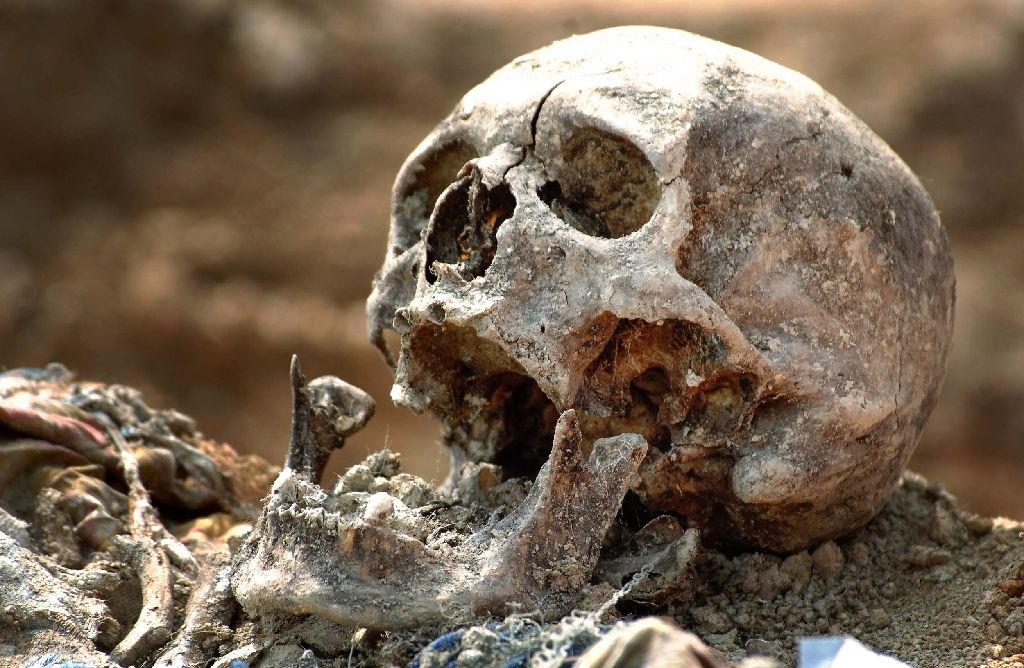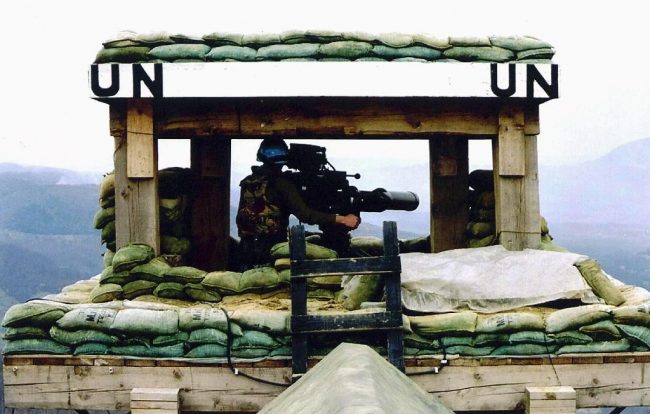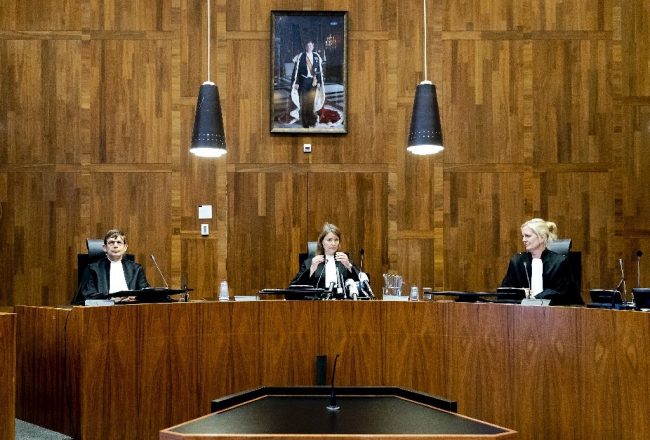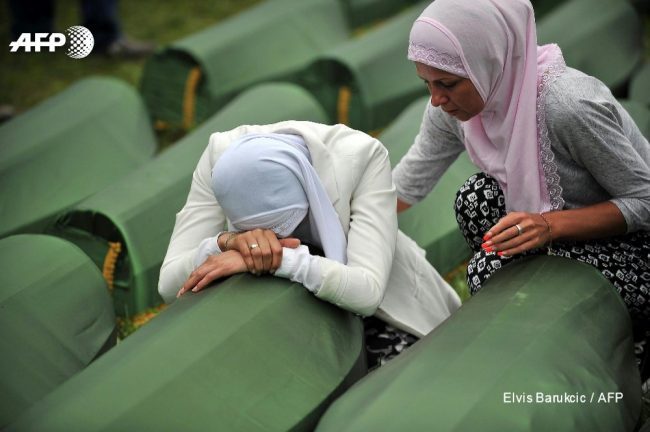

The Dutch soldiers had also “facilitated the separation of the men and the boys” among the refugees, she said, adding they should have been “warned of the risks and given the choice whether to stay in the enclave while their families were evacuated”.
Letting the men leave the base, meant they “were deprived of a chance of survival.”
Almost 8,000 Muslim men and boys were killed in the 1995 genocide, Europe’s worst atrocity since World War II.
It occurred on July 13, 1995 when lightly armed Dutch UN peacekeepers were overrun by Bosnian Serb forces.

The peacekeepers sought to protect tens of thousands of refugees who had sought safe haven at their base, which had been encircled by the Bosnian Serb forces.
Both the Dutch state and the relatives of victims had appealed a 2014 Dutch lower court ruling that the state was liable for the deaths of some 350 men who were sent off the base along with other refugees.
Lingering Controversy
The victims, represented by the Mothers of Srebrenica, had demanded that the Dutch be found responsible for most of the deaths.
Some angry shouts broke out in the courtroom as the judge insisted the ruling only applied to 350 men and boys who left the Dutch base with their families to be evacuated.
Tuesday’s ruling also found that the Dutch state is liable for some 30 percent of any damages awarded, stopping short of awarding full compensation as it found it “was uncertain” whether the men would have survived if they had remained inside the compound.

“..Dutchbat (Dutch peacekeepers) knew that during the evacuations by the Bosnian Serbs to separate the Muslim men and boys there was a real risk they could face inhumane treatment or execution” (Elvis Barucic/AFP File Photo)
Both parties can further appeal to the Supreme Court, and the Dutch defence ministry said it would carefully read the judgement, the ANP news agency said.
The Srebrenica killings have been denounced as an “act of genocide” by the UN court set up in The Hague to try those behind the atrocities of the Balkans wars. In the Netherlands the events still stir controversy, with questions remaining over the role of the Dutch blue helmets.
Late Monday, a lawyer for 206 former Dutch peacekeepers said they were suing the government for damages for sending them to defend Srebrenica, after the defence minister last year admitted it had been a “mission impossible.”
“As from tomorrow (Tuesday), 206 of my clients are claiming compensation of 22,000 euros each,” their lawyer told Dutch late night talk show Jinek on Monday.
Total damages would amount to around 4.5 million euros ($5 million).
– ‘Unrealistic mission’ –
The Dutch troops, entrenched in their base, had taken in thousands of refugees from the enclave.
Overwhelmed, the troops at first shut the gates to new arrivals, and then allowed the Bosnian Serbs to evacuate the refugees. The men and boys were separated and taken in buses to their deaths. They were lined up and shot, their bodies dumped in mass graves.
Dutch Defence Minister Jeanine Hennis-Plasschaert last year admitted the battalion had been sent to Bosnia “without adequate preparation… without the proper means, with little information, to protect a peace that no longer existed.”
“It was an unrealistic mission, in impossible circumstances,” she said.
The Hague will also see the conclusion later this year of one of the last cases before the International Criminal Tribunal for the Former Yugoslavia (ICTY).
The verdict is expected around November in the case of former Bosnian Serb army chief Ratko Mladic who has denied 11 charges of war crimes, including genocide for the Srebrenica killings.
Report by Jo Biddle – AFP
